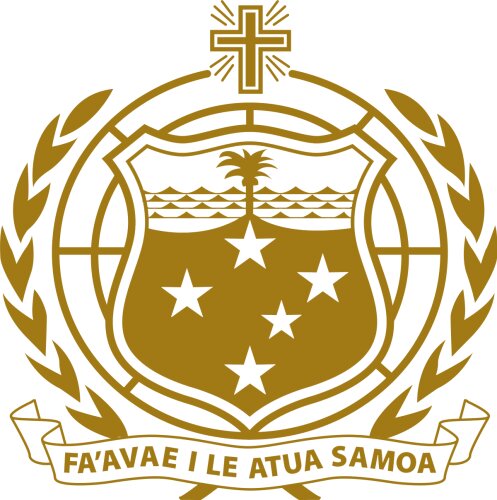Best White Collar Crime Lawyers in Apia
Share your needs with us, get contacted by law firms.
Free. Takes 2 min.
List of the best lawyers in Apia, Samoa
About White Collar Crime Law in Apia, Samoa
White collar crime refers to a range of non-violent, financially motivated crimes typically committed by individuals or organizations in positions of power and trust. In Apia, Samoa, like in many jurisdictions, white collar crimes can include fraud, embezzlement, insider trading, and money laundering, among others. Due to their sophisticated nature, these crimes often require specialized knowledge to investigate and prosecute. The regulatory framework in Samoa is evolving to address these offenses, with increasing emphasis on accountability and transparency within both public and private sectors.
Why You May Need a Lawyer
If you are facing allegations or charges related to white collar crime in Apia, Samoa, seeking legal assistance is crucial. Here are some common situations where legal help may be necessary:
- If you have been accused of fraudulent activities within your organization.
- If there are allegations of misappropriation of funds or embezzlement against you.
- If you are being investigated for insider trading or securities fraud.
- If you are involved in a complex financial transaction that may be scrutinized by regulators.
- To ensure compliance with local and international regulatory frameworks.
Local Laws Overview
The legal framework for addressing white collar crime in Samoa is governed by both statutory and common law. Key legislations include the Crimes Act 2013, which outlines various offenses related to fraud and financial misconduct. Additionally, the Money Laundering Prevention Act 2007 provides measures to detect and prevent money laundering activities. Provisions under the Companies Act 2001 also impose duties on directors and officers to act in good faith and in the best interests of the company. Enforcement is carried out by agencies such as the Samoa Police Service and Office of the Attorney General, often in collaboration with international bodies.
Frequently Asked Questions
What constitutes a white collar crime in Samoa?
White collar crimes generally include offenses like fraud, embezzlement, bribery, insider trading, and money laundering. They are characterized by deceit, concealment, or a violation of trust, and are not dependent on the application or threat of physical force or violence.
How are white collar crimes prosecuted in Apia, Samoa?
White collar crimes are prosecuted by the Office of the Attorney General in collaboration with law enforcement agencies. Prosecutions can be complex, often requiring a detailed review of financial records and documentation.
What are the consequences of being convicted of a white collar crime?
Consequences can include fines, restitution, and imprisonment, as well as reputational damage and loss of professional licenses. The severity of the sentence often depends on the magnitude of the offense and its impact.
Can a company be held liable for white collar crimes committed by its employees?
Yes, under certain circumstances a company can be held liable if it is proven that the company benefited from the employee’s actions or failed to prevent the wrongdoing.
Is it possible to resolve white collar crime cases outside of court?
Yes, some cases can be settled out of court through negotiations or plea agreements. However, this highly depends on the specifics of the case, its severity, and the willingness of parties to reach a settlement.
What role does evidence play in a white collar crime investigation?
Evidence is critical in white collar crime investigations. This can include financial records, emails, contracts, and witness testimonies. The collection and presentation of evidence often determine the course of a case.
Are there defenses available against white collar crime charges?
Yes, defenses can include lack of intent, insufficient evidence, duress, or entrapment. The applicability of these defenses will vary based on the specifics of the case.
How long does a white collar crime investigation typically take?
The duration of an investigation can vary widely depending on the complexity of the case and the amount of financial data involved. Some investigations can take months, while others may last years before reaching prosecution.
Can companies implement measures to prevent white collar crimes?
Yes, companies can adopt internal controls, compliance programs, regular audits, and employee training to prevent white collar crimes. Effective corporate governance also plays a key role in prevention.
What should I do if I am under investigation for a white collar crime?
If you are under investigation, it is important to seek legal advice immediately, refrain from discussing the matter with others, and preserve any relevant documents or evidence.
Additional Resources
For additional support or guidance, you may contact the following resources in Apia, Samoa:
- Samoa Police Service: Handles criminal investigations, including white collar crimes.
- Office of the Attorney General: Responsible for prosecuting criminal cases in Samoa.
- Money Laundering Prevention Authority: Regulates financial crimes, including money laundering activities.
- Samoan Bar Association: Provides information on legal practitioners specializing in white collar crime.
Next Steps
If you believe you need legal assistance concerning a white collar crime issue in Apia, Samoa, consider taking the following steps:
- Contact a lawyer who specializes in white collar crime for a consultation to discuss your case.
- Gather and preserve any documents or evidence related to the issue at hand.
- Refrain from discussing your case publicly or with unauthorized individuals.
- Stay informed about your legal rights and responsibilities as the case progresses.
- Follow legal advice and cooperate with investigations while maintaining your right to defense.
Lawzana helps you find the best lawyers and law firms in Apia through a curated and pre-screened list of qualified legal professionals. Our platform offers rankings and detailed profiles of attorneys and law firms, allowing you to compare based on practice areas, including White Collar Crime, experience, and client feedback.
Each profile includes a description of the firm's areas of practice, client reviews, team members and partners, year of establishment, spoken languages, office locations, contact information, social media presence, and any published articles or resources. Most firms on our platform speak English and are experienced in both local and international legal matters.
Get a quote from top-rated law firms in Apia, Samoa — quickly, securely, and without unnecessary hassle.
Disclaimer:
The information provided on this page is for general informational purposes only and does not constitute legal advice. While we strive to ensure the accuracy and relevance of the content, legal information may change over time, and interpretations of the law can vary. You should always consult with a qualified legal professional for advice specific to your situation.
We disclaim all liability for actions taken or not taken based on the content of this page. If you believe any information is incorrect or outdated, please contact us, and we will review and update it where appropriate.










